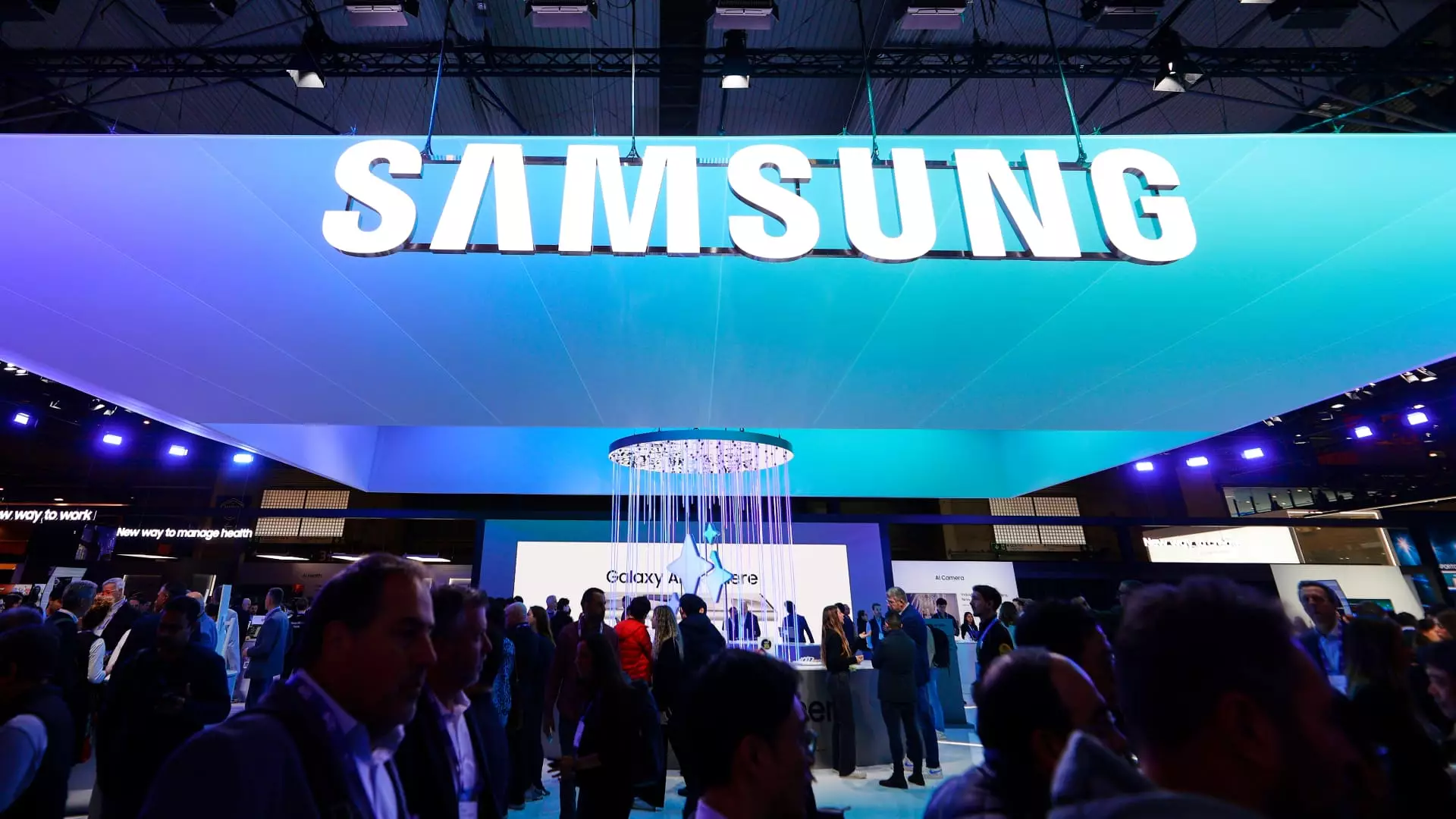Samsung Electronics, a leader in the technology sector and a powerhouse in memory chip manufacturing, has recently announced its projection for operating profit in the third quarter of the fiscal year. According to the guidance issued, Samsung anticipates an operating profit of approximately 9.10 trillion won (about $6.5 billion), which astonishingly represents a 274% increase from last year’s 2.43 trillion won. However, this figure significantly falls short of market expectations, with analysts forecasting an operating profit of around 11.456 trillion won ($7.7 billion) for the same period.
This revelation raises eyebrows, particularly among investors who were looking to Samsung for a robust performance in a recovering market. The company’s revenue is also projected to hit about 81.96 trillion won ($61 billion), yet this too reflects a troubling trend that could complicate Samsung’s financial narrative.
Apologies and Underperformance
In an unusual move, Samsung’s Vice Chairman, Jun Young-hyun, publicly apologized after the profit guidance was released. This admission underlines the company’s recognition of its struggles in the increasingly competitive memory chip market. A combination of “one-time costs and negative effects,” specifically inventory adjustments and increased supply from Chinese competitors, notably hampered the memory division’s performance.
Samsung’s dominance in manufacturing memory chips places it at a pivotal junction. With demand for legacy chips, which are integral in devices like laptops and smartphones, failing to meet expected growth rates, Samsung’s market share is at risk. As Daniel Yoo from Yuanta Securities Korea noted, the company has been more conservative in aggressively capturing market share, highlighting a shift in strategy during a crucial time.
The semiconductor landscape is evolving rapidly, and Samsung finds itself in a position where it must adapt to survive. The analysts from Macquarie Equity Research underscore the necessity for Samsung to remain agile in its memory supply control. The falling demand for traditional DRAM products poses a significant threat, particularly in light of how this downturn could disproportionately affect Samsung in comparison to its smaller competitors. This caution serves as a reminder of the volatile nature of the tech industry, where market dynamics can shift unexpectedly.
To further compound its challenges, reports have surfaced indicating that Samsung has directed its subsidiaries globally to reduce staff by approximately 30% in certain divisions. This drastic step illustrates the company’s need to streamline operations and reconsider its workforce amid faltering chip sales and profit outlooks.
The repercussions of Samsung’s disappointing financial guidance have already begun to materialize, with the company’s shares experiencing a 22% decline year-to-date, according to LSEG data. Following the announcement, stock prices dipped by 0.98%, a reflection of investor sentiment amidst uncertainty regarding future performance.
As Samsung prepares to share more detailed results later this month, the spotlight will be on whether the company can rectify its trajectory and navigate the complex landscape of the tech industry. The third-quarter results could provide critical insights into how well Samsung is positioned to recover from these setbacks, ultimately influencing both market perception and the company’s long-term viability in the global economy.

